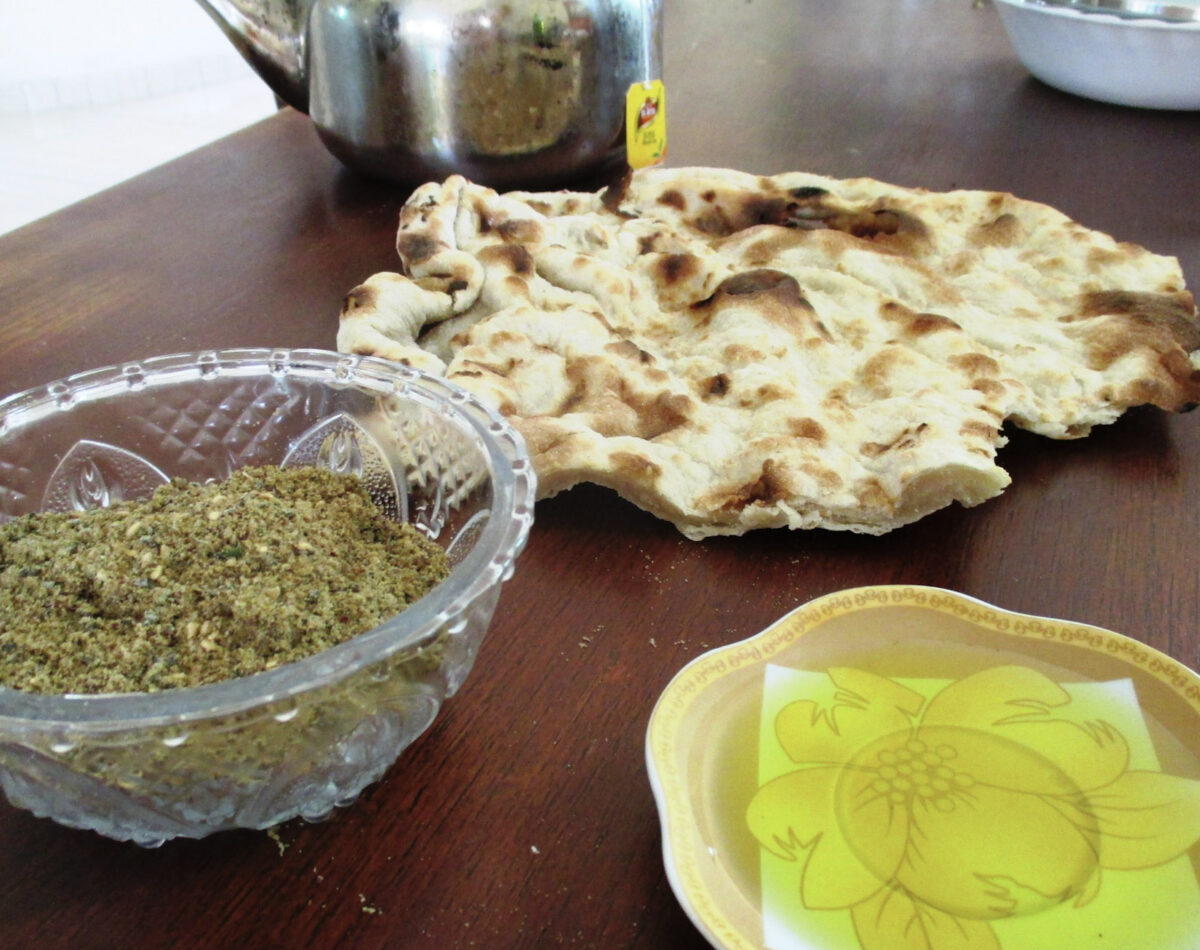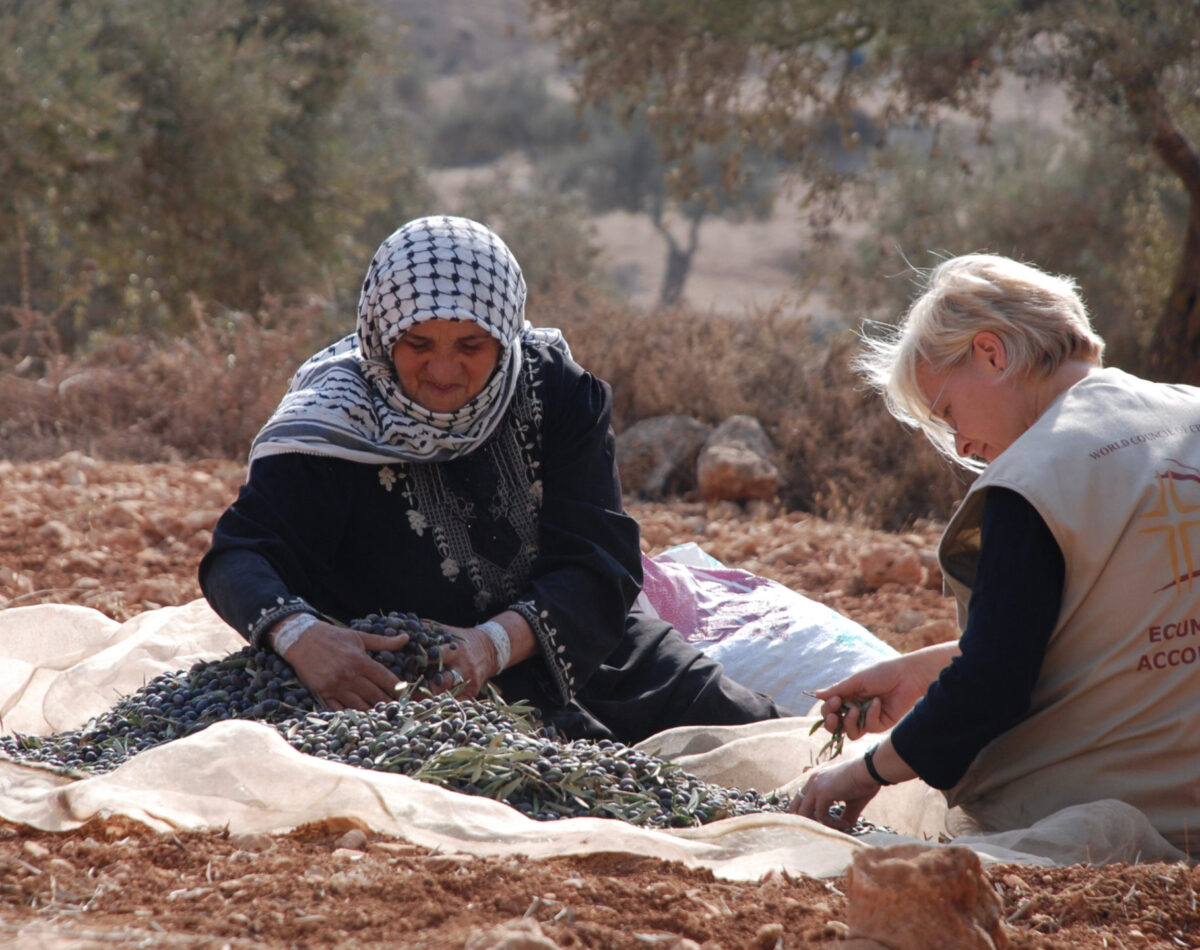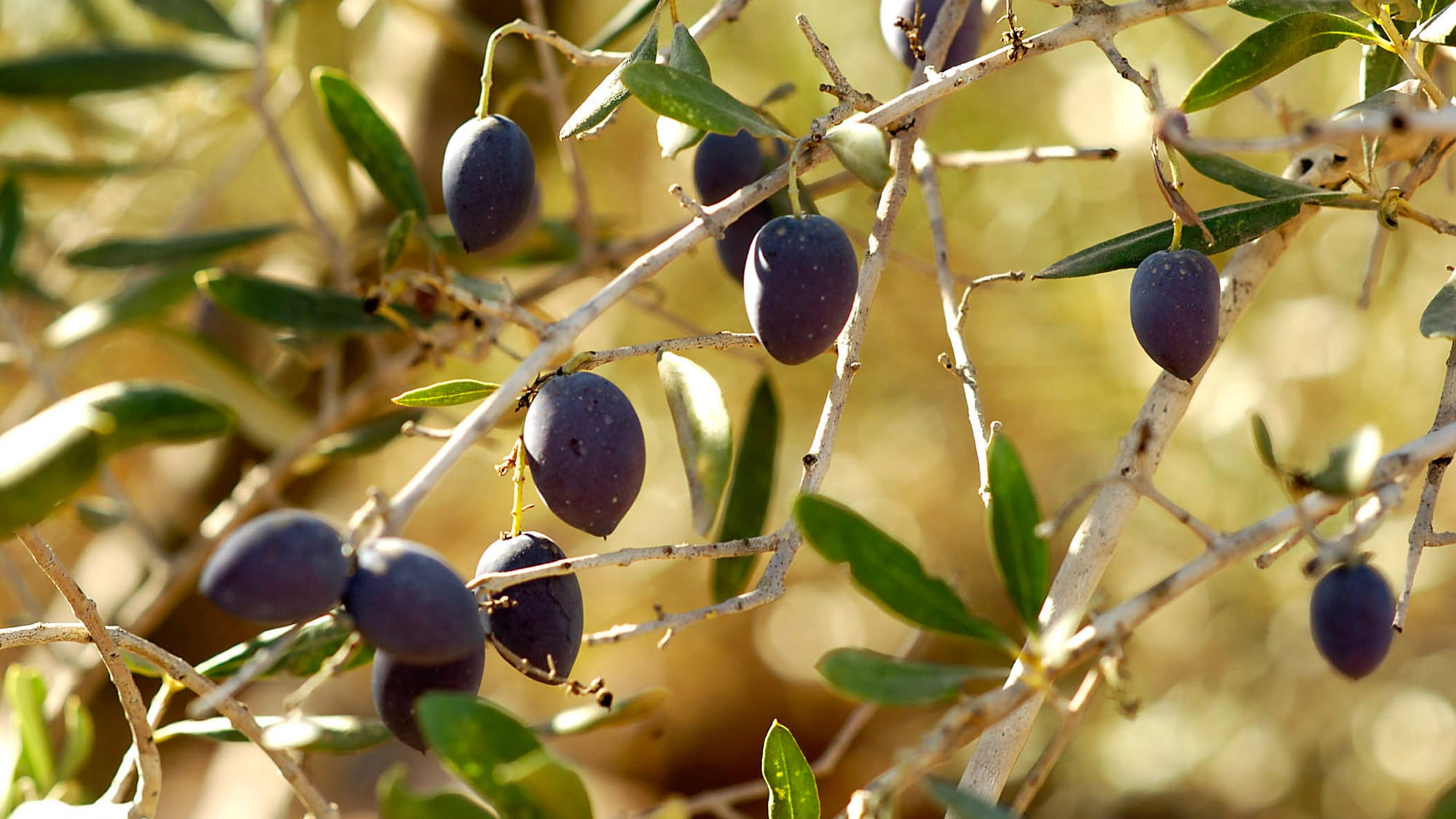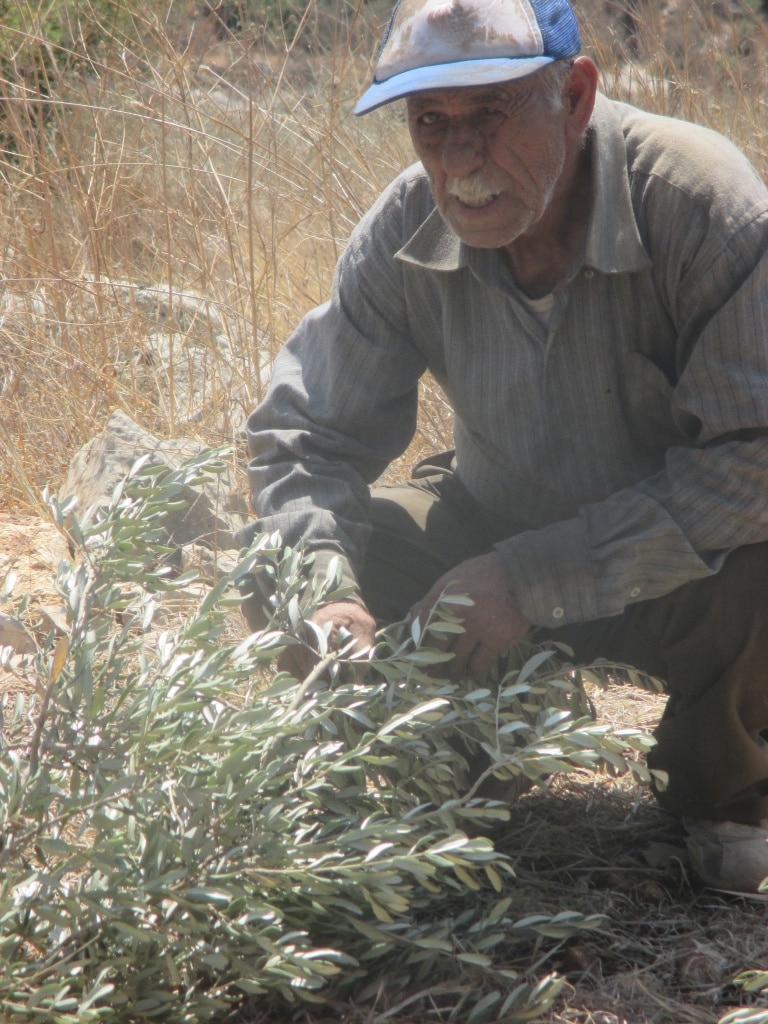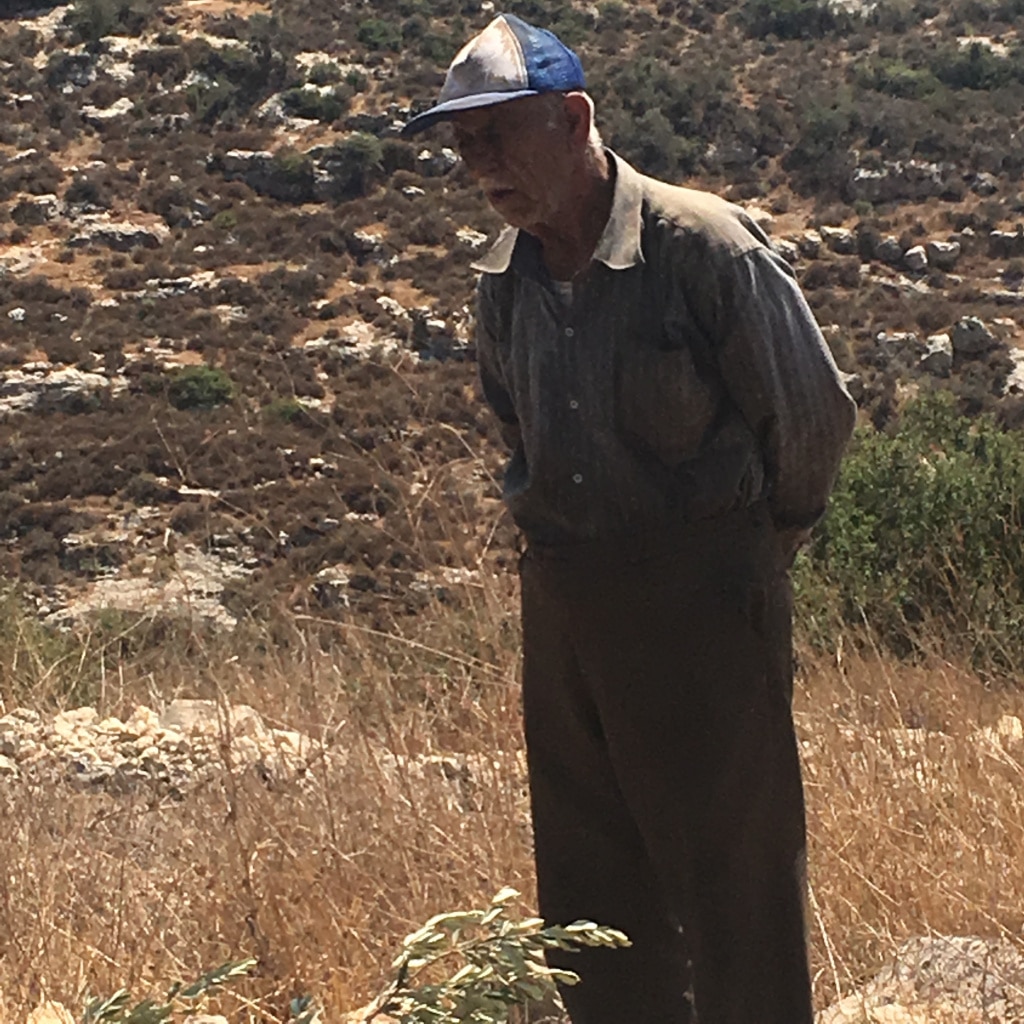‘Around 1,000 km2 of Palestinian land is planted with olive trees, mainly because they grow in poor soil and will produce olives even when farmers cannot access their trees.’
EA Patricia
The BBC called Palestinian olives ‘perhaps the most political food in the world‘, while Time Magazine called the olive groves ‘a battleground’. Around 100,000 Palestinian families rely on olive trees to provide them with olives, olive oil and olive wood. The trees are a source of nutrition and for many, they are their main source of income. But olive trees are not just a commodity, they also have cultural, historical and symbolic significance.
The olive trees of Palestine have been tended by many generations and Palestine is home to some of the world’s oldest olive trees – there’s a tree in Bethlehem called Al-Badawi that’s believed to be more than 4,000 years old. Olive trees and olive branches are also universally recognised as symbols of peace and wisdom. Olive trees symbolise Palestinians’ attachment to the land and are also seen as representing Palestinian resistance and resilience.
A UN report called The Besieged Palestinian Agricultural Sector noted that:
‘Agriculture is a crucial part of the Palestinian narrative and has a privileged place in Palestinian classical and modern literature, traditional songs and poetry. Agriculture is an integral component of Palestinian communal, cultural, economic and social life. To date, agriculture has remained of great significance to Palestinians and their identity and culture, to which land and crops are central. Over and above their traditional roles in the generation of income, employment and food, land and agriculture have come to symbolize Palestinian resilience and perseverance in the face of ongoing land loss due to prolonged occupation and the expansion of Israeli settlements.’
Every aspect of life in Palestine is impacted by the Israeli occupation and because of this, the agricultural sector has been severely curtailed. Systematic Israeli practices and controls mean that many Palestinian farmers are restricted from accessing their own farmland.
Israeli settlements are usually located close to existing Palestinian communities. Israel places restrictions on Palestinian freedom of movement, forbidding Palestinians from entering settlements and the surrounding area, even though this often constitutes restrictions on entering their own land and accessing their harvest. Because of the location of settlements, some Palestinian farmers can only access their fields a few days a year and some land becomes completely inaccessible.
Settlements are sometimes built around private Palestinian farmland. The 723km Separation Barrier that aims to divide Israel from the West Bank also divides farmers from their farms in the areas where the barrier cuts into Palestinian land. Palestinian farmers have to apply for permits from Israel in a process that can be long and bureaucratic. If successful, the permits enable them to pass through military controlled agricultural gates in the barrier. The gates are open for short periods in the morning and evening only.
Israel also references an Ottoman law that means that any land that is uncultivated for three years automatically becomes state land. This law was historically introduced to encourage the cultivation and care of abandoned land. Its application by the State of Israel however is seen by Israeli NGO B’Tselem and others as a pretext for land annexation. It applies even in cases when Palestinian farmers are not allocated permits and unable to access their land to cultivate it.
Some farmers report that if Israel deems their land on the Israeli side of the barrier (but still on Palestinian territory) to be too small, they won’t provide them with permits. Such severe restrictions result in farmers having no choice but to plant olive trees, even when their land would be better suited to other types of farming. Since olive trees can survive with little attention, they are a way of retaining land ownership and provide the main source of income for Palestinian farmers.
There are countless barriers that Palestinian farmers face on a daily basis in order to make a living and hold on to their land. Another problem that many face is the destruction of their olive trees. There are frequent stories of olive trees being destroyed by both the Israeli military and Israeli settlers living in the West Bank.
He immediately went to the field with his son and a neighbour. When he arrived, there were around ten soldiers in the field overseeing the cutting down of 250 of his olive trees. After the trees were cut down, what remained was sprayed to ensure they would not grow again. Despite being the owner of the land, in 2013 he had received a confiscation order and a six-year legal battle began. Despite the order, Ghassan had no option but to continue to farm the land and hope for the best.
The trees that were cut down in September were planted five years ago and this year was going to be their first harvest of olives. His son said that Ghassan sometimes slept in the field because he was so concerned about the trees. By the time he arrived at the field that morning in September, most of the trees had been destroyed and all he could do was to watch the rest be cut down. His lawyer had received no notice that the trees were being cut down on that day and the soldiers could not show Ghassan any official paperwork that sanctioned their actions. He contacted the local Palestinian authorities to get some clarity but they had not received any update that a legal decision had been made or that this was going to happen. The Israeli military went ahead and destroyed the trees that had been cultivated for five years in a few hours. Ghassan is unlikely to see justice. Israeli NGO Yesh Din research reveals that 93.4% of investigations regarding damage to Palestinian olive trees were closed by Israeli police without resolution.
Even though Ghassan is the owner of the land, one soldier who was present said that the field was considered to be Israeli State land and openly stated that the trees were being cut down to allow for the expansion of the industrial estate in the adjacent settlement. This large industrial estate currently contains about 350 factories. Bruqin residents are also very concerned about the effluent from the industrial zone that flows into the village. The residents believe the waste results in health problems and environmental damage.
Since 1981, Israel has confiscated a large amount of Bruqin village land to establish the Israeli settlement of Barqan and its expanding industrial zone. The confiscations continue and Palestinians have little means to challenge them. A number of the villagers, with few options for alternative forms of income, are forced to work as laborers in the settlement. Furthermore, taking a legal challenge rarely results in success for Palestinians.
Around 2.5 million trees, one-third of which are olive trees, are believed to have been uprooted since the 1967 Six Day War, when Israel first occupied the West Bank. The Applied Research Institute Jerusalem estimates that between 1967 and 2009, the destruction of olive trees cost the Palestinian economy more than $55 million.
Olive oil accounts for 25% of the West Bank’s agricultural exports and UN figures highlight that around 48% of agricultural land in the West Bank and Gaza is planted with olive trees. They account for 70% of Palestinian fruit production and contribute 14% to the Palestinian economy. Around 1,000 km2 of Palestinian land is planted with olive trees.
*Not his real name


